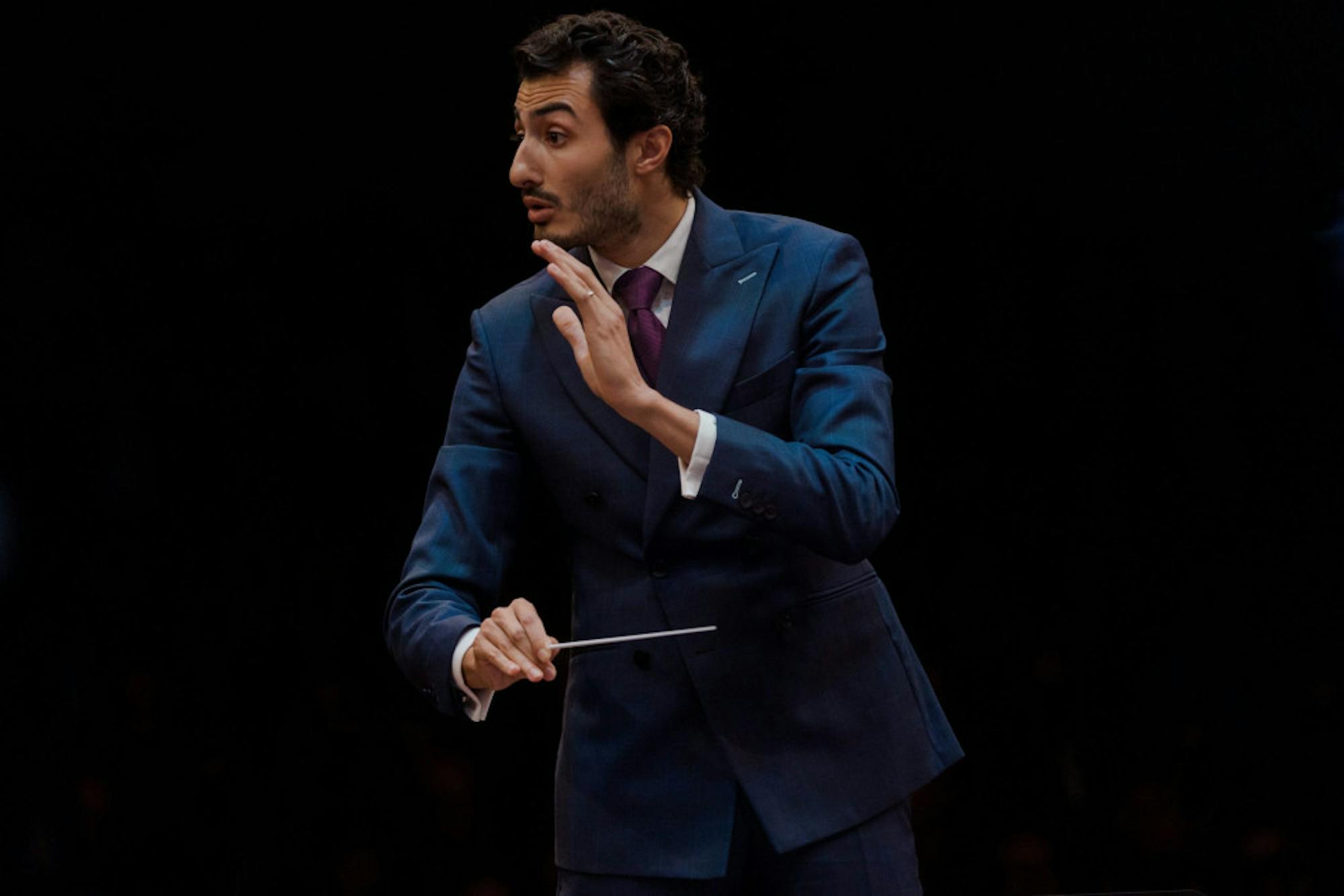The Boston Symphony Orchestra has named Samy Rachid as its newest assistant conductor, effective October 2023. Rachid, a young French conductor, formerly played cello for the Arod Quartet before leaving the ensemble in 2021 to focus on conducting. Since Rachid started his conducting career, he has won second prize in the 2021 Tokyo International Music Competition for Conducting, been a conducting fellow of the Verbier Festival 2022, and conducted many world-renowned orchestras such as the Orchestre Philharmonique de Strasbourg, Tokyo Philharmonic and Hungarian Symphony Orchestra Szeged. Rachid’s debut performance with the BSO will be summer 2024 at Tanglewood.
The Daily had the privilege of speaking with Rachid about conducting, canon formation, reaching new audiences and everything classical music.
Even though Rachid entered conducting fairly recently, it had always been a dream of his.
“From the very beginning, my mind was set that I would become a conductor,” Rachid said.
After beginning to learn music at 10 years old, Rachid was distracted from his dream of conducting by his love for the cello. One thing led to the next and, rather than becoming a conductor, he found himself the cellist of a quartet he helped form while studying at the Conservatoire de Paris. The quartet went on to achieve great success, winning several competitions, including the prestigious 2016 ARD in Munich, but Rachid still yearned for the orchestra and baton.
“One day, [I] realized that it had been eight years since this thing started,” Rachid said. “I can easily remember every time we were on tour in opera houses or concert halls, and I was looking at the program of what was playing in the main hall with the orchestra … with a strange feeling [of] maybe in another life I will do that.”
As live performances stopped with the outbreak of the COVID-19 pandemic, the opportunity for this new experience suddenly arrived.
“Everything stopped for everyone,” Rachid said. “This was really the confirmation that I didn’t want to practice my cello and learn new string quartets.”
Leaving the Arod Quartet was not easy. Rachid acknowledged that it was difficult to leave the quartet with some projects left unfinished. But, he knew he had to make a choice and, feeling that he “[couldn’t] live without the orchestra,” there was only one path to take.
It didn’t take long for Rachid to build his foundation as a conductor. This also meant growing a personal style. As a conductor, it is important to Rachid to have a unique, individualized relationship with the music.
To help facilitate his own interpretation of a piece, Rachid meticulously studies the written score of the music rather than focusing on videos of past conductors or famous recordings of masterworks.
Rachid discussed some of the ways he prepares for a piece.
“The study of the score is really the only thing that matters,” Rachid said. “Of course, at the beginning, I listen to some recordings … and then I try to detach as much as possible from all of it to really get my own feeling about the piece.”
Such an approach allows for new life to be brought to established works, but also requires confidence and flexibility with the orchestra.
Recognizing that the musicians he works with may have already played the pieces he conducts, potentially before he was even born, Rachid emphasized the importance of good communication between a conductor and their orchestra.
“It’s always important to keep it as a dialogue between you and the orchestra, because sometimes they have a better experience in the piece than you,” Rachid said.
Rachid then spoke about bringing classical music to new audiences, and the function of the orchestra. In introducing classical music to a new audience, Rachid finds transparency important.
“We live in a time where everything is very open and transparent. And I think that's a key thing to attract a new audience,” Rachid said.
Being open and transparent involves trusting the new audience member, rather than trying to curate their experience.
“The repertoire is not really what can stop people [from coming] to a concert. I would even say that sometimes it's easier to attract them with Schoenberg than with Mozart,” Rachid said. “When I was in my quartet, we had amazing reactions from the audience with pieces that we thought would be even more difficult for them to take.”
Rachid concluded by emphasizing that an orchestra is a body of the community, and is meant for the people. According to Rachid, adopting and continuing this outlook is crucial to the future of orchestras.
“If we don’t have the audience, we are nothing. We can not just play in an empty hall,” Rachid said.
The effect of Rachid’s distinctive perspective on conducting and music will first be heard in the summer 2024 Tanglewood season, followed by appearances during the 2024–25 BSO concert season.






